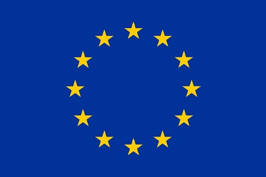Objectives: This research aimed to explore the associations between self-directed ageism and everyday information and communication technology (EICT) usage in older people. Additionally, it examined and challenged disempowering environmental aspects and features that perpetuate (self-)ageism and contribute to the internalization of negative images of ageing in the context of later life EICT usage.
Results: The findings of this project demonstrate that both ageism and self-ageism play a crucial role in the uptake and use of EICT in older people. Ageist and disempowering environmental features and components, such as policy-decisions, media depictions, stigmatizing elements in the technology design or younger family member’s attitudes and reactions toward an older EICT user, can reinforce self-ageism and lead to low everyday ICT adoption and use in older persons.
Secondment(s)(Months), co-Supervisors: AGE (2.5m) Julia Wadoux ; UNECE (3m) Dr. Vitalija Gaucaite Wittich. These secondments were geared to inform this project about current international policy frameworks and inter-governmental and multi-stakeholder work on ageing and ageism. They were also expected to provide the early stage researcher with tools to effectively translate research into policy recommendations.







